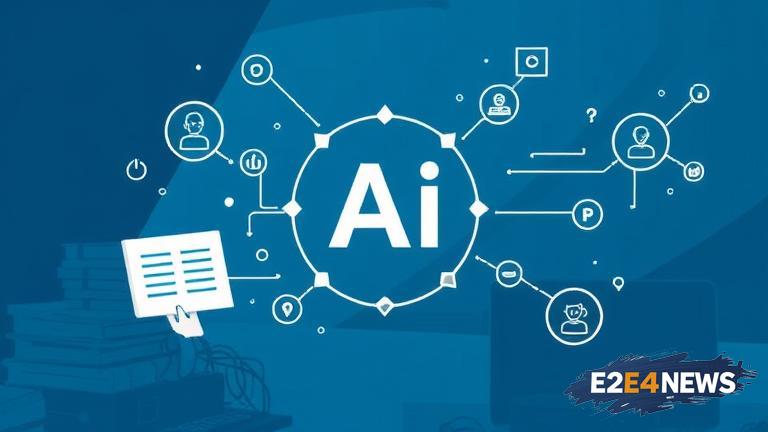The integration of Artificial Intelligence (AI) in educational institutions has sparked a debate about its potential to transform the assessment process. As AI technology advances, it is being explored for its ability to assist in marking and providing feedback to students. This development has significant implications for the future of education, as it could potentially enhance the efficiency and accuracy of the assessment process. However, it also raises important questions about the role of human assessors and the potential risks associated with relying on AI. One of the primary concerns is ensuring that AI systems are fair, unbiased, and transparent in their decision-making processes. Moreover, there is a need to establish clear guidelines and standards for the use of AI in assessment to prevent inconsistencies and errors. Despite these challenges, AI has the potential to revolutionize the way assessments are conducted, particularly in terms of providing immediate feedback to students. This can help to improve student outcomes by allowing them to identify areas where they need to improve and track their progress over time. Furthermore, AI can help to reduce the workload of human assessors, enabling them to focus on more complex and nuanced aspects of assessment. Nevertheless, it is crucial to recognize that AI is not a replacement for human judgment and expertise. Instead, it should be seen as a tool that can augment and support the assessment process. To achieve this, educators and policymakers must work together to develop frameworks that balance the benefits of AI with the need for human oversight and intervention. This includes investing in the development of AI systems that are specifically designed for educational purposes and can be integrated seamlessly into existing assessment frameworks. Additionally, there is a need for ongoing research and evaluation to ensure that AI is being used effectively and responsibly in assessment. This research should focus on understanding the impact of AI on student learning outcomes, as well as its potential to exacerbate existing inequalities and biases in the education system. By taking a thoughtful and informed approach to the use of AI in assessment, educators can harness its potential to improve the learning experience while minimizing its risks. Ultimately, the key to successful implementation will be finding a balance between the efficiency and accuracy offered by AI and the nuance and expertise provided by human assessors. As the education sector continues to evolve, it is likely that AI will play an increasingly important role in shaping the future of assessment and feedback. Therefore, it is essential that educators, policymakers, and technologists work together to ensure that AI is used in a way that supports the needs of students and promotes high-quality learning outcomes. The use of AI in assessment also raises important questions about the role of teachers and educators in the learning process. As AI takes on more routine and administrative tasks, teachers will be able to focus on more complex and creative aspects of teaching, such as designing engaging lesson plans and providing individualized support to students. However, this will require significant investment in teacher training and development to ensure that educators have the skills and knowledge needed to work effectively with AI systems. Moreover, there is a need to consider the potential impact of AI on the education workforce, including the potential for job displacement and the need for new forms of professional development. By addressing these challenges and opportunities, educators and policymakers can ensure that the use of AI in assessment supports the needs of both students and teachers, and promotes a high-quality and equitable education system. The development of AI systems for assessment also has significant implications for the education technology industry, as companies seek to develop and market AI-powered assessment tools. This has the potential to drive innovation and investment in the sector, as well as to improve the quality and effectiveness of assessment practices. However, it also raises important questions about the regulation and oversight of education technology, including the need to ensure that AI systems are transparent, secure, and compliant with relevant laws and regulations. Ultimately, the successful implementation of AI in assessment will require a coordinated effort from educators, policymakers, and technologists to ensure that AI is used in a way that supports the needs of students and promotes high-quality learning outcomes.





